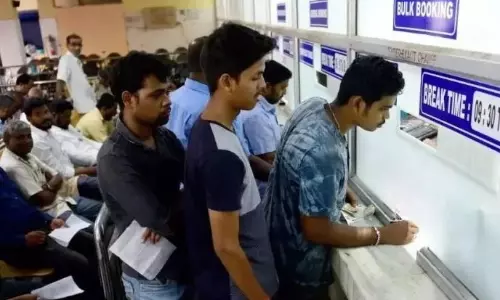
Judging women based on clothes 'misogynistic prejudice': Kerala HC
text_fieldsKochi: Judging women on the basis of their clothes or expecting them to be sad about getting a divorce are indications of a "misogynistic prejudice" and "reinforce a very skewed gender stereotype", the Kerala High Court observed. The court of Justices Devan Ramachandran and M B Snehalatha set aside a family court ruling that denied a mother custody of her children because she wore revealing dresses, PTI reported.
The family court had also accepted arguments that the woman celebrated her divorce and had an account on a dating app.
The High Court said that consciously or subconsciously, societies impose restrictions on women's autonomy and scrutinize their choices, and women are supposed to adhere to certain standards, including their choice of clothes and appearances.
Conclusions that certain styles of dressing make women persons of loose morals “are unfortunately sexist in tenor, and lazed by archaic notions of patriarchy, especially when no one has a right to judge women by the manner in which she dresses, or by the choices of her manner of life," the HC noted.
"Though we cannot find the findings of the Family Court to be true even factually, we deem it necessary to remind that clothing is a form of self-expression being part of an individual's identity, or an expression of general aesthetics," the HC bench said.
It further said that it was "unpardonable and impermissible in any civilized society to judge a woman solely on the basis of her dress, or to thus conclude upon her virtue or her modesty".
"The sartorial preferences that a woman makes is that of her own choice, which cannot be subjected to moral policing or assessment, particularly by courts," it added.
Strongly disagreeing with the findings and reasoning of the Family Court, the High Court set it aside by saying that "courts cannot be suspected to be guilty of even borderline misogynism or sexism, and our constitutional mandate is that we decide matters as per its conscience and within its overriding umbra".
The High Court granted custody of the children to the mother by also taking into account the kids' wish to stay with her full-time and being open to meeting their father on holidays.






















